Are you looking to streamline your business operations and enhance productivity? Look no further than erp software programs. In today’s fast-paced business landscape, staying ahead of the competition requires efficient management and seamless coordination of various departments. ERP software programs act as a powerful tool that integrates different aspects of your business, enabling you to achieve optimal performance and drive growth. Let’s delve into the importance of ERP software programs and gain a brief overview of their capabilities.
Mục lục
- 0.1. Understanding the Importance of ERP Software Programs
- 0.2. Brief Overview of ERP Software Programs
- 1. Benefits of ERP Software Programs
- 2. Key Features to Consider in ERP Software Programs
- 3. Section IV: How to Choose the Right ERP Software Program
- 4. Section V: Implementation Process of ERP Software Programs
- 5. Conclusion
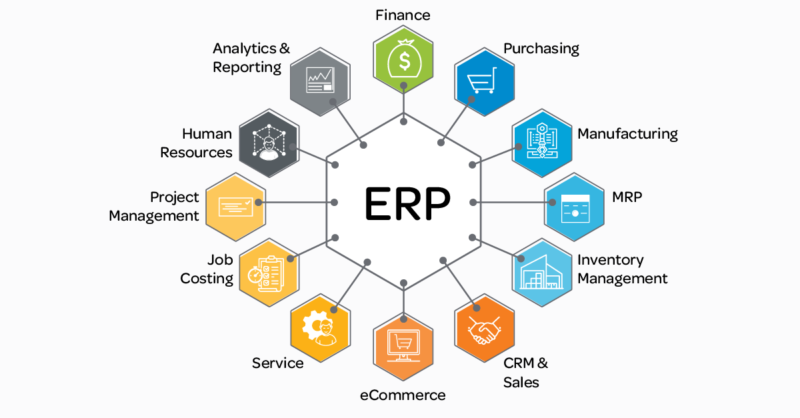
Understanding the Importance of ERP Software Programs
Imagine running a business where every department operates independently, utilizing separate software and systems. The lack of synchronization often leads to data discrepancies, delays in decision-making, and hindered collaboration. This is where ERP software programs come into play. ERP, which stands for Enterprise Resource Planning, is a comprehensive software solution that connects all facets of your organization under one unified system.
ERP software programs enable you to manage and automate various business processes, including inventory management, finance, human resources, customer relationship management, and more. By centralizing your data and operations, ERP software programs provide real-time insights, empowering you to make informed decisions and adapt swiftly to market changes.
Brief Overview of ERP Software Programs
ERP software programs offer a wide range of functionalities, tailored to meet the specific needs of different industries. These programs integrate modules that encompass critical business functions, such as accounting, supply chain management, manufacturing, project management, and sales. By consolidating these essential components, ERP software programs eliminate silos and foster seamless collaboration across departments.
Moreover, ERP software programs enhance data accuracy and reporting capabilities. They eliminate manual data entry, reducing the risk of errors and providing accurate, up-to-date information for analysis and decision-making. Additionally, ERP software programs promote cost reduction and a higher return on investment by optimizing business processes, reducing redundancies, and enhancing overall efficiency.
In the following sections, we will delve deeper into the benefits of ERP software programs, key features to consider when choosing the right program, the implementation process, and best practices for successful implementation. Join me on this journey of exploring ERP software programs and unlock the potential for growth and success in your business.
Stay tuned for Section II, where we will uncover the remarkable benefits of ERP software programs and how they can transform your business operations.
Benefits of ERP Software Programs
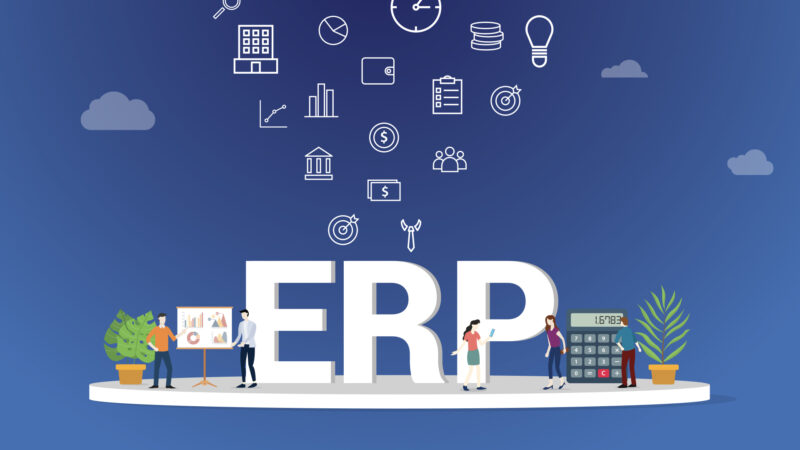
In today’s competitive business landscape, organizations are constantly seeking ways to enhance their operations and gain a competitive edge. ERP software programs offer a multitude of benefits that can revolutionize how businesses function. Let’s explore some of the key advantages that ERP software programs bring to the table.
Streamlining Business Processes
One of the primary benefits of ERP software programs is their ability to streamline and automate business processes. By integrating various departments and functions, ERP software programs eliminate the need for manual data entry, redundant tasks, and disjointed workflows. This streamlining not only saves time but also reduces the risk of errors and improves overall operational efficiency.
Increased Efficiency and Productivity
ERP software programs empower organizations to optimize their operations and boost productivity. With a centralized system, employees can access real-time information, collaborate seamlessly, and make informed decisions faster. By automating repetitive tasks and providing a holistic view of business operations, ERP software programs free up valuable time for employees to focus on strategic initiatives, innovation, and customer satisfaction.
Enhanced Data Accuracy and Reporting
Accurate and reliable data is crucial for making informed business decisions. ERP software programs ensure data integrity by eliminating manual data entry and reducing the risk of errors. With centralized data storage and real-time updates, organizations can trust the accuracy of their data, enabling them to generate comprehensive reports and gain valuable insights into their performance and areas for improvement.
Improved Customer Relationship Management
Customer satisfaction is the lifeblood of any successful business. ERP software programs offer robust customer relationship management (CRM) capabilities, allowing organizations to effectively manage their interactions with customers. By integrating sales, marketing, and customer support functions, ERP software programs enable businesses to provide personalized experiences, track customer interactions, and nurture long-term relationships.
Cost Reduction and Return on Investment
Implementing an ERP software program is an investment that yields substantial returns over time. By streamlining processes, eliminating redundancies, and optimizing resource allocation, ERP software programs help organizations reduce costs associated with manual tasks, inventory management, and administrative overhead. Additionally, improved operational efficiency and enhanced decision-making lead to increased revenue generation and better financial outcomes.
In the next section, we will explore the key features to consider when choosing the right ERP software program for your organization. Join me as we delve into the world of ERP software programs and unlock their full potential for your business.
Stay tuned for Section III, where we will discuss the essential features to consider when selecting an ERP software program.
Key Features to Consider in ERP Software Programs
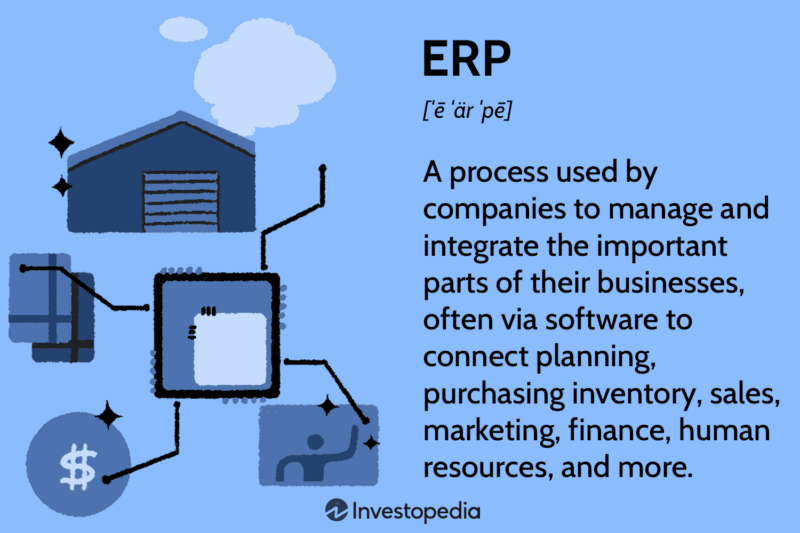
When selecting an ERP software program for your business, it’s crucial to evaluate the key features that will meet your specific requirements. Here are some essential features to consider during your decision-making process:
Scalability and Customization Options
As your business grows, your ERP software should be able to scale along with it. Look for a program that offers scalability, allowing you to add new modules, users, and functionalities seamlessly. Additionally, customization options are vital to tailor the software to your unique business processes and workflows. Ensure that the ERP software program provides flexibility in customization, empowering you to adapt it to your specific needs.
Integration with Existing Systems and Software
Efficient integration with your existing systems and software is a critical factor in the success of your ERP implementation. Evaluate how well the ERP software program integrates with your current infrastructure, including accounting software, CRM systems, and other third-party applications. Smooth integration ensures a seamless flow of data between different systems, minimizing manual data entry and reducing errors.
User-Friendly Interface and Accessibility
A user-friendly interface is essential to ensure widespread adoption and ease of use for your employees. Look for an ERP software program that offers an intuitive interface, simplifying navigation and reducing the learning curve. Accessibility is another crucial consideration, especially in today’s mobile and remote work environments. Ensure that the ERP software program provides mobile access and supports various devices, enabling your team to access critical information anytime, anywhere.
Advanced Reporting and Analytics Tools
Data-driven decision-making is at the core of successful businesses. An ERP software program should offer advanced reporting and analytics tools to transform raw data into actionable insights. Look for features such as customizable dashboards, real-time reporting, and data visualization capabilities. These tools empower you to monitor key performance indicators, identify trends, and make informed decisions to drive business growth.
Security and Data Protection Measures
Protecting your sensitive business data should be a top priority. Ensure that the ERP software program incorporates robust security measures, such as data encryption, access controls, and regular system updates. Additionally, evaluate the software’s data backup and disaster recovery capabilities to safeguard your information from potential threats or system failures.
By considering these key features when selecting an ERP software program, you can ensure that your chosen solution aligns with your business needs and sets the foundation for smooth operations and future growth. In the following section, we will explore how to choose the right ERP software program, guiding you through the selection process. Stay tuned for Section IV, where we will unravel the secrets to finding the perfect ERP software program for your business needs.
Section IV: How to Choose the Right ERP Software Program
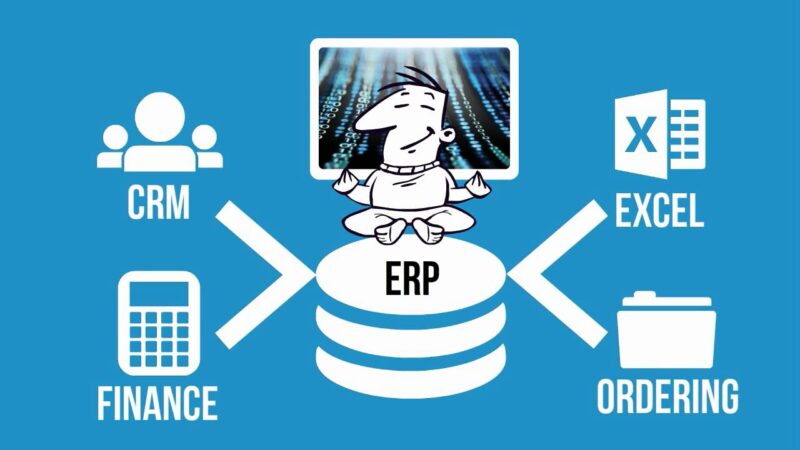
In the vast sea of ERP software programs available in the market, selecting the right one for your business can be a daunting task. However, by following a systematic approach and considering key factors, you can make an informed decision that aligns with your specific needs. Let’s explore the essential steps to guide you in choosing the perfect ERP software program.
Assessing Business Needs and Requirements
Before diving into the world of ERP software programs, it’s crucial to assess your business needs and requirements thoroughly. Take the time to understand your organization’s unique processes, challenges, and long-term goals. Identify the specific functionalities and modules you require to streamline your operations effectively. This step will serve as the foundation for evaluating potential ERP solutions.
Researching Available Options in the Market
Once you have a clear understanding of your business needs, research the available ERP software options in the market. Look for reputable vendors with a proven track record and a diverse range of offerings. Consider industry-specific ERP software programs that cater to your niche requirements. Read reviews, case studies, and customer testimonials to gain insights into the software’s performance and reliability.
Evaluating Vendor Reputation and Customer Support
Choosing an ERP software program means entering into a long-term partnership with the vendor. Hence, it’s essential to evaluate the vendor’s reputation and customer support. Look for established vendors with a strong presence in the market and a history of successful implementations. Assess the vendor’s responsiveness, availability of technical support, and willingness to address your concerns promptly.
Considering Budget and Total Cost of Ownership
Budget is a crucial factor when choosing an ERP software program. Consider the upfront costs, licensing fees, implementation charges, and ongoing maintenance expenses. Additionally, evaluate the total cost of ownership, taking into account factors like customization, training, data migration, and future upgrades. Strike a balance between your budget constraints and the features and functionalities offered by the ERP software program.
Requesting Demos and Trials
To truly understand the capabilities and user-friendliness of an ERP software program, request demos and trials from shortlisted vendors. This hands-on experience will allow you to assess the software’s interface, usability, and compatibility with your existing systems. Involve key stakeholders from different departments to gather diverse perspectives and ensure the software meets their specific requirements.
By following these steps, you can navigate the selection process with confidence and find an ERP software program that aligns seamlessly with your business needs. In the next section, we will explore the implementation process of ERP software programs, so stay tuned for Section
Don’t miss the upcoming section where we will uncover the implementation process of ERP software programs. Stay tuned for Section V, where we will guide you through the necessary steps to ensure a successful implementation.
Section V: Implementation Process of ERP Software Programs
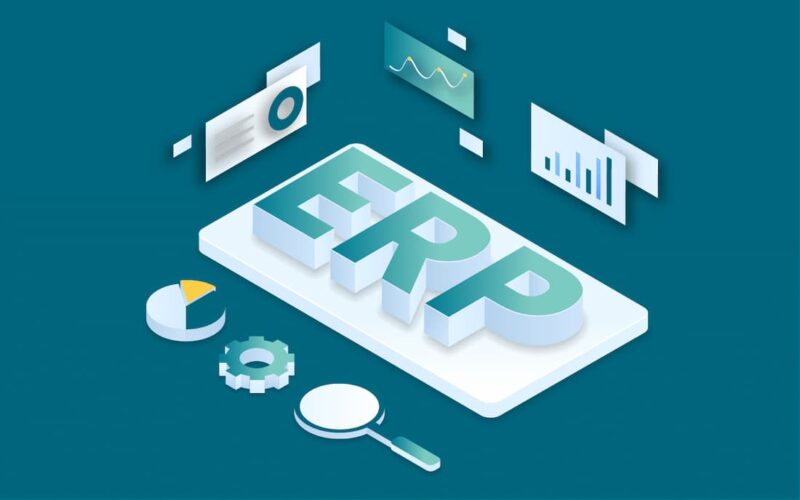
Implementing an ERP software program requires careful planning and execution to ensure a smooth transition and successful adoption by your organization. Let’s explore the key steps involved in the implementation process.
Planning and Strategy Development
Before diving into the implementation process, it is crucial to develop a comprehensive plan and strategy. This involves defining clear goals, understanding the specific requirements of your business, and identifying the key stakeholders involved. Collaborate with relevant teams and departments to establish a roadmap that aligns with your organizational objectives.
Data Migration and System Configuration
Once the planning phase is complete, the next step is to migrate your existing data and configure the ERP software program to meet your specific needs. This involves mapping and transferring data from your legacy systems to the new ERP solution. System configuration entails customizing the software to align with your business processes, such as defining workflows, access controls, and user permissions.
Training and User Adoption
To ensure a successful implementation, it is essential to provide comprehensive training to your employees. Conduct training sessions that cover the functionalities of the ERP software program and how it aligns with their respective roles and responsibilities. Encourage user adoption by highlighting the benefits and addressing any concerns or resistance. Ongoing support and training should be available to help users navigate the software effectively.
Testing and Quality Assurance
Before going live, thorough testing and quality assurance are vital to identify and resolve any issues or bugs. Test all functionalities and workflows to ensure they align with your business requirements. Conduct multiple rounds of testing, involving end-users, to ensure a seamless experience and identify any potential areas for improvement.
Go-Live and Post-Implementation Support
Once the software has been thoroughly tested and deemed ready, it’s time to go live. During this phase, carefully monitor the system’s performance and address any immediate concerns or challenges that arise. Post-implementation support is crucial to help users adjust to the new system and address any issues that may arise during the initial stages. Regular communication with the ERP software vendor and continuous monitoring will ensure a successful transition and optimal utilization of the system.
Stay tuned for the next section, where we will uncover the best practices for a successful ERP software program implementation.
Conclusion
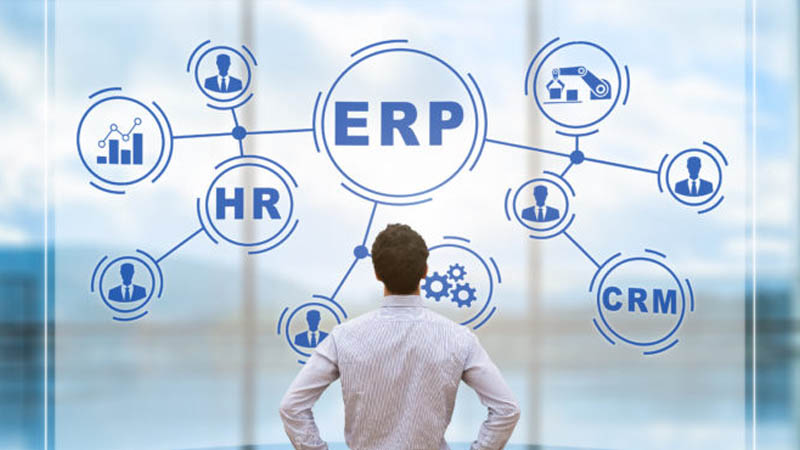
In conclusion, ERP software programs have revolutionized the way businesses operate by providing a robust and integrated solution to manage various facets of an organization. With the main keyword “erp software program” in mind, we have explored the importance of ERP software programs and gained a brief overview of their capabilities.
Implementing an ERP software program offers numerous benefits, including streamlined business processes, increased efficiency and productivity, enhanced data accuracy and reporting, improved customer relationship management, and cost reduction. By centralizing data and operations, businesses can make informed decisions, adapt quickly to market changes, and drive growth.
When choosing the right ERP software program, it is crucial to consider key features such as scalability, customization options, integration capabilities, user-friendliness, advanced reporting tools, and security measures. Thorough research and evaluation of vendors, along with assessing business needs and budget, are essential steps in making an informed decision.
During the implementation process, careful planning, data migration, user training, and testing are crucial for a successful deployment. Following best practices, such as obtaining management support, engaging stakeholders, conducting thorough testing, and continuous monitoring, will ensure optimal utilization of the ERP software program.
As an SEO-optimized article, we have explored the importance of ERP software programs and highlighted the benefits they bring to businesses. If you’re ready to take your business to new heights, consider implementing an ERP software program like erp.ebest.vn. With its powerful features and comprehensive capabilities, erp.ebest.vn can transform your business operations and drive success.
Remember, the key to achieving maximum efficiency and growth lies in leveraging the power of ERP software programs. Embrace the future of business management and unlock your organization’s full potential with an ERP software program today!